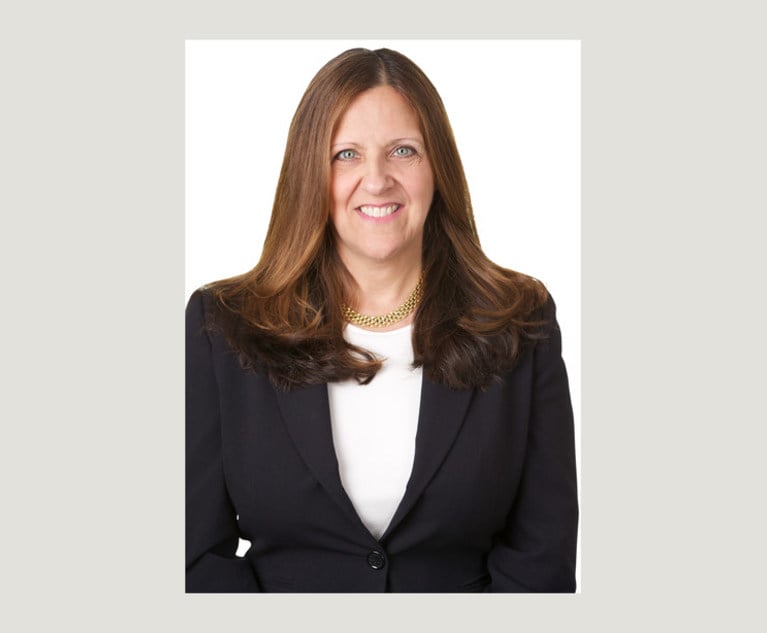 Bigstock
BigstockS-121 and its Real Benefits
OP-ED: There is still a great deal of harassment and discrimination in the workplace. Statutes like S-121 will help peel away the wall of secrecy that companies and individuals love to hide behind.
June 07, 2019 at 11:00 AM
3 minute read
Despite what was written in a recent New Jersey Law Journal commentary (“Keeping Harassment Settlements Confidential After S121″), the statute recently signed into law by Governor Murphy is clear, unambiguous, and provides a real benefit to employees who for years have been kept in the dark regarding other claims of harassment and discrimination that had been resolved by their employers or former employers. It would seem, however, that the author is suggesting that the management bar adopt the “Catch and Kill Technique” used so often by entities like the National Enquirer to silence sexual harassment and discrimination victims. Surely, our role as attorneys is not to figure out an unsavory way of trying to get around a statute that is designed to protect the thousands of those victims.
The author attempted to downplay her shocking suggestion by calling it simply “purchasing” a story. It is much more than that. To do what the author suggests has the effect of concealing the details of a discrimination or harassment claim, a clear violation of S-121. A “Catch and Kill” agreement would be illegal and against public policy under S-121, which specifically states that any person “who enforces or attempts to enforce” such a (confidentiality) provision shall be “liable for the employee's reasonable attorney's fees and costs.”
S-121 is good public policy. The main thrust of S-121 is to expose harassers so that their outrageous conduct can be stopped. How many of Harvey Weinstein's 80 or so victims could have been saved if the many monetary settlements were not confidential? As we now know, when the history of Harvey Weinstein's conduct became public, he was shamed, fired, and is in the process of being prosecuted. How long would that conduct have continued if it remained a “secret”? Conversely, how many other innocent victims of similar vile conduct by others would have been prevented if it were exposed sooner? The “me too” movement has fortunately opened all of our eyes to conduct that has been kept secret for years. S-121 goes a long way to preventing this type of behavior in the future.
Employers have claimed that doing away with confidentiality will prevent or hinder future settlements. There is no data to back this up, and nothing was produced before the Legislature to even remotely prove this point.
The author, clearly someone who does not represent the thousands of New Jersey residents who are harassed, discriminated against and retaliated against by their employers, is providing a blueprint for employers to “get around the statute.” This certainly should not be condoned, and she should be ashamed for writing such a piece.
Unfortunately, there is still a great deal of harassment and discrimination in the workplace. Statutes like S-121 will help peel away this wall of secrecy that companies and individuals love to hide behind.
Evan L. Goldman is a partner in the Law Firm of Goldman Davis Krumholz & Dillon in Hackensack and Jersey City. He focuses on employment law and is currently the president of the National Employment Lawyers Association, New Jersey Chapter.
This content has been archived. It is available through our partners, LexisNexis® and Bloomberg Law.
To view this content, please continue to their sites.
Not a Lexis Subscriber?
Subscribe Now
Not a Bloomberg Law Subscriber?
Subscribe Now
NOT FOR REPRINT
© 2024 ALM Global, LLC, All Rights Reserved. Request academic re-use from www.copyright.com. All other uses, submit a request to [email protected]. For more information visit Asset & Logo Licensing.
You Might Like
View All
For Lawyers, the 'Work' of Making an Impact Does Not Have to Happen in a Courtroom. Laura E. Sedlak Says

Doing the Right Thing in the Pursuit of Justice Requires Guts, Says Lyndsay Ruotolo

One Can be Most Impactful When Their Pursuits Are Driven by Their Concerns and Passions, Says Sherilyn Pastor

As a Lawyer, You Have a Powerful Way to Make an Impact, Says Mary Frances Palisano
Trending Stories
- 1Life, Liberty, and the Pursuit of Customers: Developments on ‘Conquesting’ from the Ninth Circuit
- 2Biden commutes sentences for 37 of 40 federal death row inmates, including two convicted of California murders
- 3Avoiding Franchisor Failures: Be Cautious and Do Your Research
- 4De-Mystifying the Ethics of the Attorney Transition Process, Part 1
- 5Alex Spiro Accuses Prosecutors of 'Unethical' Comments in Adams' Bribery Case
Who Got The Work
Michael G. Bongiorno, Andrew Scott Dulberg and Elizabeth E. Driscoll from Wilmer Cutler Pickering Hale and Dorr have stepped in to represent Symbotic Inc., an A.I.-enabled technology platform that focuses on increasing supply chain efficiency, and other defendants in a pending shareholder derivative lawsuit. The case, filed Oct. 2 in Massachusetts District Court by the Brown Law Firm on behalf of Stephen Austen, accuses certain officers and directors of misleading investors in regard to Symbotic's potential for margin growth by failing to disclose that the company was not equipped to timely deploy its systems or manage expenses through project delays. The case, assigned to U.S. District Judge Nathaniel M. Gorton, is 1:24-cv-12522, Austen v. Cohen et al.
Who Got The Work
Edmund Polubinski and Marie Killmond of Davis Polk & Wardwell have entered appearances for data platform software development company MongoDB and other defendants in a pending shareholder derivative lawsuit. The action, filed Oct. 7 in New York Southern District Court by the Brown Law Firm, accuses the company's directors and/or officers of falsely expressing confidence in the company’s restructuring of its sales incentive plan and downplaying the severity of decreases in its upfront commitments. The case is 1:24-cv-07594, Roy v. Ittycheria et al.
Who Got The Work
Amy O. Bruchs and Kurt F. Ellison of Michael Best & Friedrich have entered appearances for Epic Systems Corp. in a pending employment discrimination lawsuit. The suit was filed Sept. 7 in Wisconsin Western District Court by Levine Eisberner LLC and Siri & Glimstad on behalf of a project manager who claims that he was wrongfully terminated after applying for a religious exemption to the defendant's COVID-19 vaccine mandate. The case, assigned to U.S. Magistrate Judge Anita Marie Boor, is 3:24-cv-00630, Secker, Nathan v. Epic Systems Corporation.
Who Got The Work
David X. Sullivan, Thomas J. Finn and Gregory A. Hall from McCarter & English have entered appearances for Sunrun Installation Services in a pending civil rights lawsuit. The complaint was filed Sept. 4 in Connecticut District Court by attorney Robert M. Berke on behalf of former employee George Edward Steins, who was arrested and charged with employing an unregistered home improvement salesperson. The complaint alleges that had Sunrun informed the Connecticut Department of Consumer Protection that the plaintiff's employment had ended in 2017 and that he no longer held Sunrun's home improvement contractor license, he would not have been hit with charges, which were dismissed in May 2024. The case, assigned to U.S. District Judge Jeffrey A. Meyer, is 3:24-cv-01423, Steins v. Sunrun, Inc. et al.
Who Got The Work
Greenberg Traurig shareholder Joshua L. Raskin has entered an appearance for boohoo.com UK Ltd. in a pending patent infringement lawsuit. The suit, filed Sept. 3 in Texas Eastern District Court by Rozier Hardt McDonough on behalf of Alto Dynamics, asserts five patents related to an online shopping platform. The case, assigned to U.S. District Judge Rodney Gilstrap, is 2:24-cv-00719, Alto Dynamics, LLC v. boohoo.com UK Limited.
Featured Firms
Law Offices of Gary Martin Hays & Associates, P.C.
(470) 294-1674
Law Offices of Mark E. Salomone
(857) 444-6468
Smith & Hassler
(713) 739-1250






